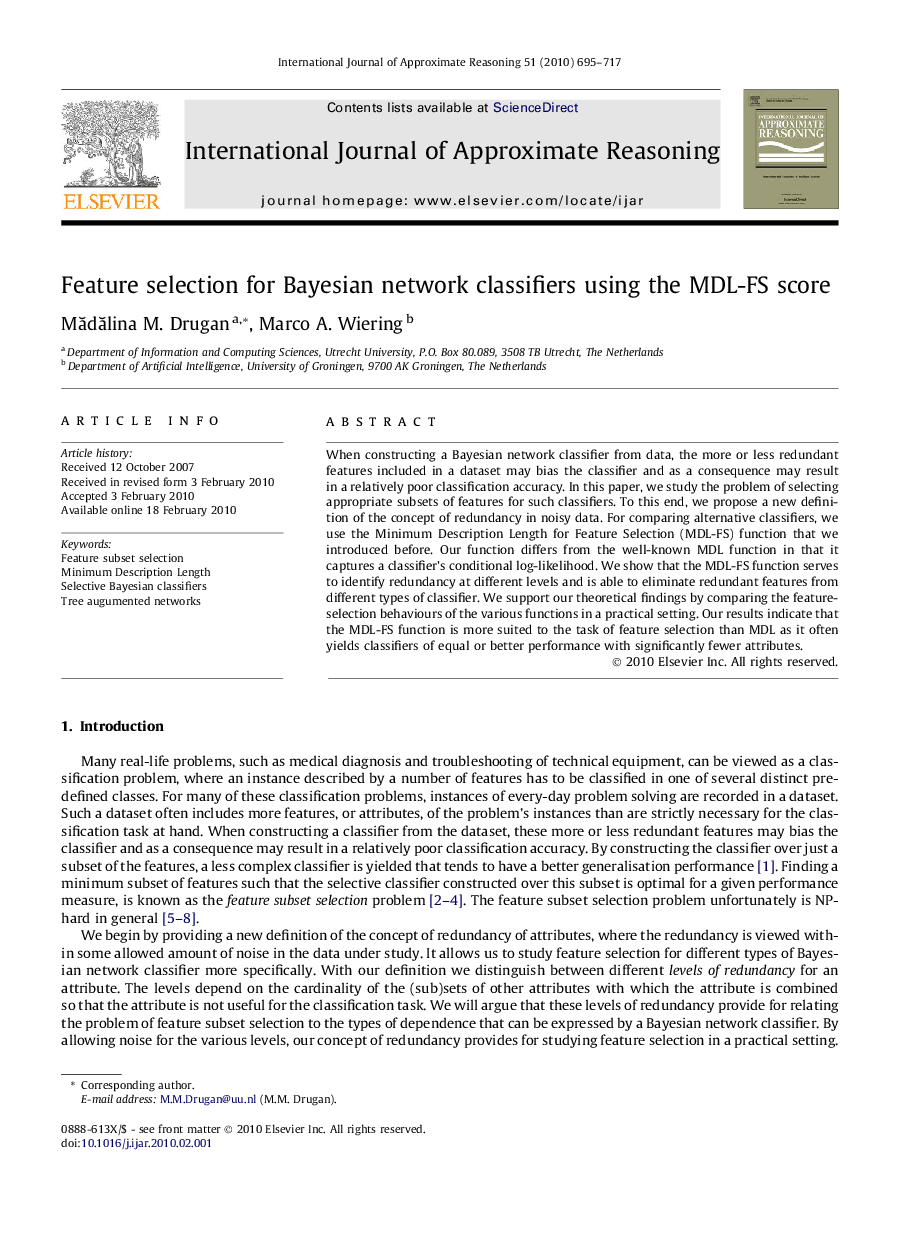| کد مقاله | کد نشریه | سال انتشار | مقاله انگلیسی | نسخه تمام متن |
|---|---|---|---|---|
| 398124 | 1438492 | 2010 | 23 صفحه PDF | دانلود رایگان |

When constructing a Bayesian network classifier from data, the more or less redundant features included in a dataset may bias the classifier and as a consequence may result in a relatively poor classification accuracy. In this paper, we study the problem of selecting appropriate subsets of features for such classifiers. To this end, we propose a new definition of the concept of redundancy in noisy data. For comparing alternative classifiers, we use the Minimum Description Length for Feature Selection (MDL-FS) function that we introduced before. Our function differs from the well-known MDL function in that it captures a classifier’s conditional log-likelihood. We show that the MDL-FS function serves to identify redundancy at different levels and is able to eliminate redundant features from different types of classifier. We support our theoretical findings by comparing the feature-selection behaviours of the various functions in a practical setting. Our results indicate that the MDL-FS function is more suited to the task of feature selection than MDL as it often yields classifiers of equal or better performance with significantly fewer attributes.
Journal: International Journal of Approximate Reasoning - Volume 51, Issue 6, July 2010, Pages 695-717